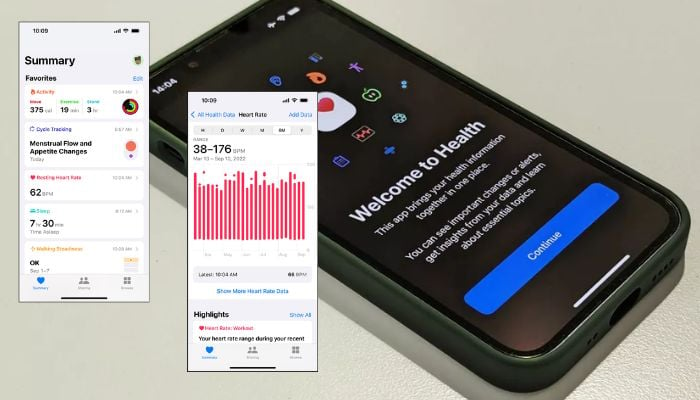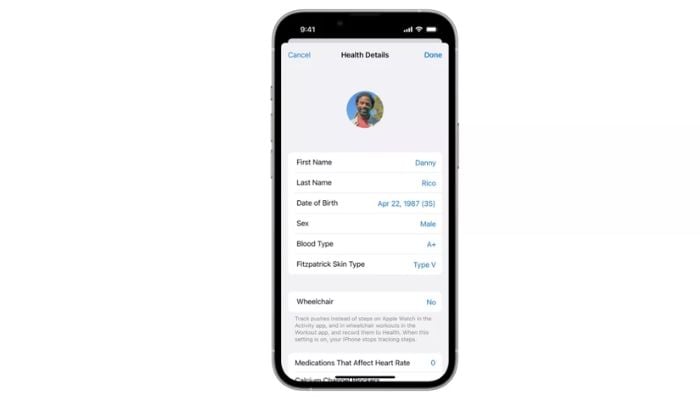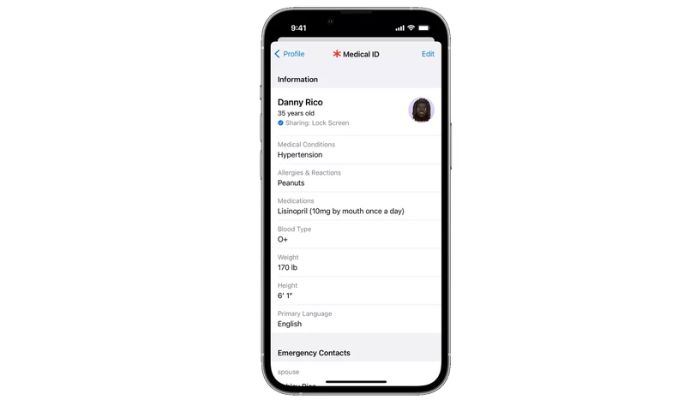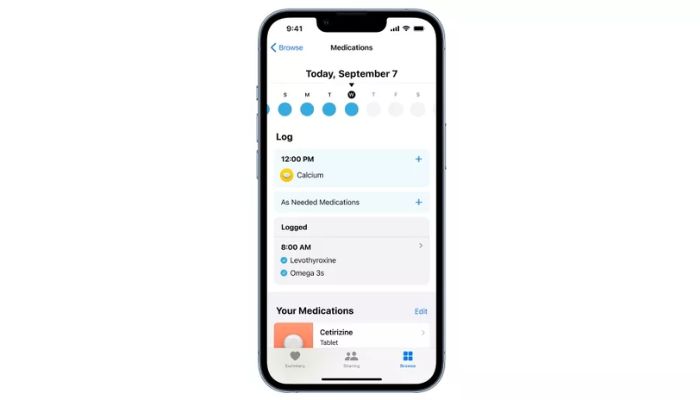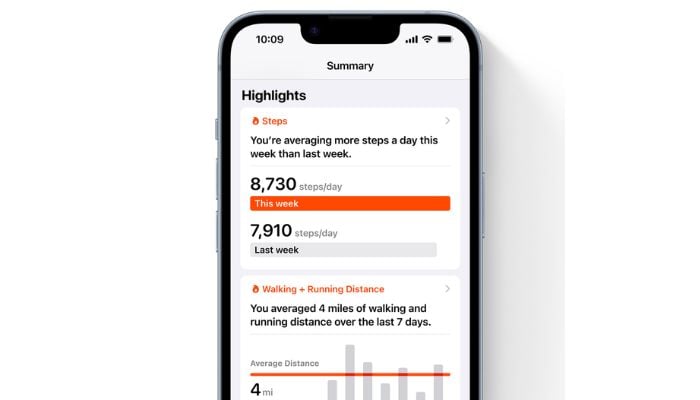Here is why you should use the iOS Health app
Since the Health app is never actually front and centre as part of iOS, some people might completely overlook this one-stop shop
If you've ever configured and used an Apple Watch, you're probably familiar with the built-in Apple Health app on iOS. It keeps a lot of information, like your name, blood type, and date of birth as well as more intricate details like how well you sleep.
However, since it's never actually front and centre as part of iOS, some people might completely overlook this one-stop shop.
The iOS Health app's tendrils ensnare practically all of your iPhone activities; it collects information on your screen time, activity, sleep, and even your heart rate if you have an Apple Watch linked.
Where is it?
The Health app may be found on your phone by utilising the Spotlight search feature on your iPhone or by visiting the App Library, swiping to the right of your most recent home screen.
Creating the profile
Creating your Health Profile is simple. Plus, you don't have to put any more information than you feel comfortable with since Apple does claim it cares about privacy.
Your name, birth date, sex, blood type, and skin type are all listed on your profile. If you need a wheelchair, you can include that here as well and it will accurately record the distance travelled.
You might also provide any current medications you are taking, such as beta-blockers, that may have an impact on your heart rate.
Medical ID
The medical ID function of Apple Health, which enables immediate access to crucial information if you are discovered with your phone in any emergency situation is one of its most significant features.
This covers your native language, emergency contacts, and medical issues as well as allergies. If nothing, the iOS Health app is worth downloading for shortening the time it takes for emergency personnel to identify you and any pre-existing conditions you have.
The Health app has a helpful Health Checklist that you may use during setup to customise the settings to your preferences. For instance, we enable Fall Detection just when working out and enable heart rate alerts for high and low heart rates.
You can turn practically every little component of the system on and off, which is an astounding degree of malleability.
Medication and travel
Apple has added a new drug notification mechanism to the Health app. Now, your phone can remind you to take your prescription and check to see whether any new medications you receive are compatible with those you already take.
Even though many medications can feel like a typical part of our day, this feature is helpful when travelling because it can change the drug notice to meet your new time zone. It is also great for people that are really busy or just generally forgetful.
This can facilitate a smooth transition and reduce the possibility of mistakenly taking too much of a drug or forgetting to pack a tablet when flying halfway around the world.
The summary screen
The summary page, which provides a lot of glanceable data across many parameters is the focal point of the Health app, according to Tech Radar.
At the top of the screen, you may quickly scroll to uncover important, time-sensitive messages, followed by details regarding exercise, trends, and a series of highlights, including audio exposure and post-workout heart rate.
-
Bella Hadid opens up about 'invisible illness'
-
SpaceX launches another batch of satellites from Cape Canaveral during late-night mission on Saturday
-
Inside Kim Kardashian's brain aneurysm diagnosis
-
Chappell Roan explains fame's effect on mental health: 'I might quit'
-
Jelly Roll explains living with 'severe depression'
-
NASA targets March 6 for launch of crewed mission around moon following successful rocket fueling test
-
Greenland ice sheet acts like ‘churning molten rock,’ scientists find
-
Space-based solar power could push the world beyond net zero: Here’s how
